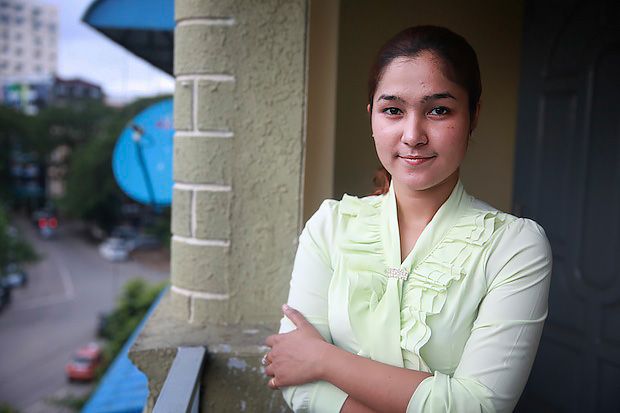Wai Wai Nu is all too familiar with how identity politics can cause deep division. Growing up in Myanmar, she saw how divided the Rakhine and Rohingya, two mostly Muslim ethnic groups that used to coincide in the Rakhine state. The Rakhine make up the majority of the state, leaving the Rohingya, an unofficial sect, the stateless minority. Wai Wai and her family were part of the Rohingya.
At the age of 18, Wai Wai and her family spent seven years in prison, due to her father’s position as a member of Parliament for the political opposition. During her time in prison with her mother and sister, she met many women, most of them in prison due to varying combinations of poverty and abuse. When she was released in 2012 thanks to a change in government, she decided to put her efforts towards women’s equality and improving the lives of her fellow Rohingya. “After meeting so many [people in prison] who were not guilty of crimes, I realized that I wanted to do something that can really change the country’s political and economic system,” Wai Wai told TIME. She has seen firsthand how cultural divides, as well as a lack of respect and understanding for the “other”, can tear lives apart.
Soon after her release from prison, she earned her law degree and founded two NGOs — Women’s Peace Network-Arakan and Justice For Women — through which she aims to empower Myanmar’s youth through legal counsel and rights education. The first is dedicated to building peace in her home state. In 2015, Wai Wai launched a project online simply called the #MyFriend campaign. The goal was to counter hate speech and foster inclusivity by urging social media users to snap and share selfies with their friends of all different racial and religious backgrounds. Justice For Women focuses mainly on educating women about unfortunately common types of abuse, such as sexual harassment and domestic violence. Both of these NGOs are doing important work in promoting tolerance in western Myanmar and the engagement of women and youth to end human rights abuses in their country.
Wai Wai spoke on Thursday in Davos at the World Economic Forum as part of a panel discussing how to foster inclusivity in the face of so much division, mainly due to identity politics which reduces groups to a single identity. She discussed how the exclusion of and discrimination against her people has created a lot of hatred and violence, and how such division can create this everywhere, no matter the country.
Wai Wai recognized that identity politics is on the rise, and therefore the need to have constructive dialogues focused on divisive topics and to come up with solutions that bridge these divides has become urgent. This is something that we all need to realize, so that we can have these conversations and come up with solutions to these issues that face our country, and the entire world, before it is too late.

